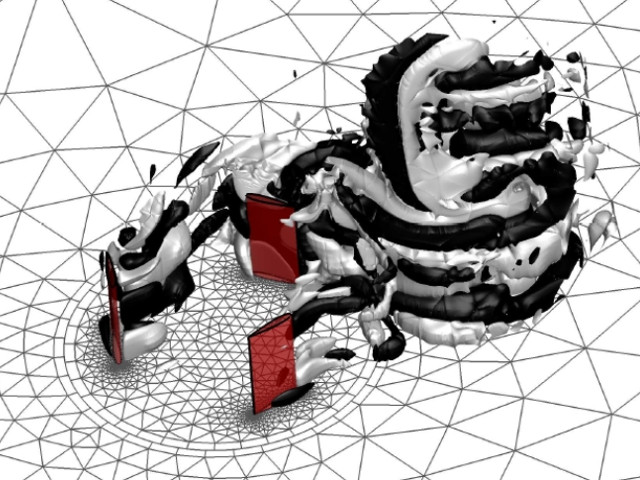Authors
Garicano-Mena, J., Li, B., Ferrer, E., Valero, E.
Journal Paper
http://doi.org/10.1063/1.5119342
Publisher URL
Publication date
In this contribution, we consider the Dynamic Mode Decomposition (DMD) framework as a purely data-driven tool to investigate both standard and actuated turbulent channel databases via Direct Numerical Simulation (DNS). Both databases have comparable Reynolds number Re ≈ 3600. The actuation consists in the imposition of a streamwise-varying sinusoidal spanwise velocity at the wall, known to lead to drag reduction. Specifically, a composite-based DMD analysis is conducted, with hybrid snapshots composed by skin friction and Reynolds stresses. A small number of dynamic modes (∼3–9) are found to recover accurately the DNS Reynolds stresses near walls. Moreover, the DMD modes retrieved propagate at a range of phase speeds consistent with those reported in the literature. We conclude that composite DMD is an attractive, purely data-driven tool to study turbulent flows. On the one hand, DMD is helpful to identify features associated with the drag, and on the other hand, it reveals the changes in flow structure when actuation is imposed.



